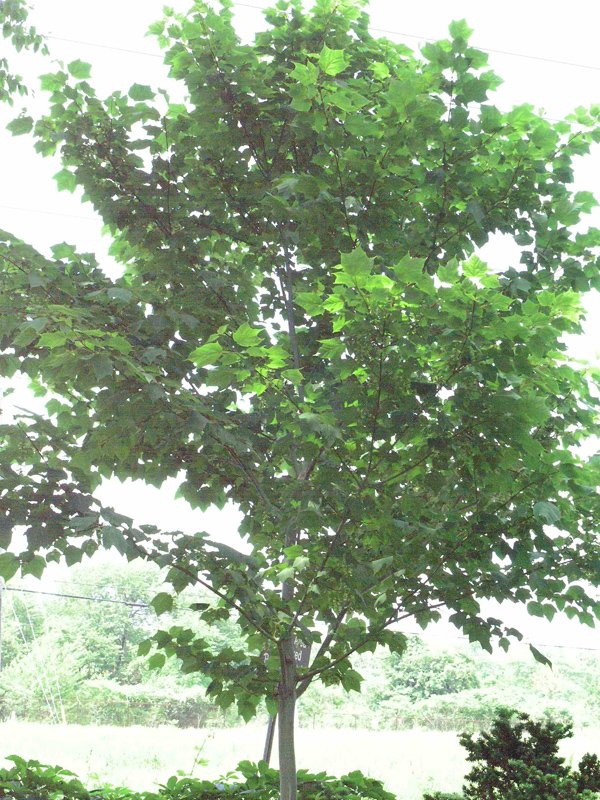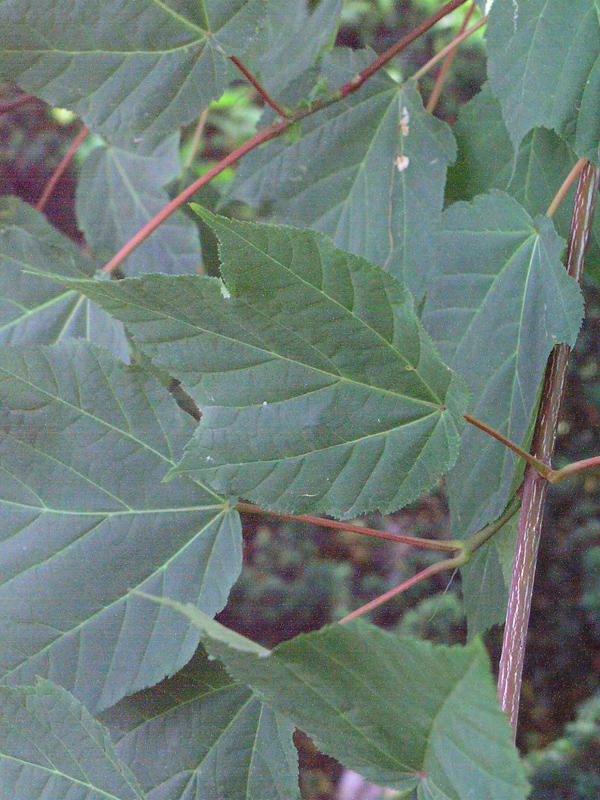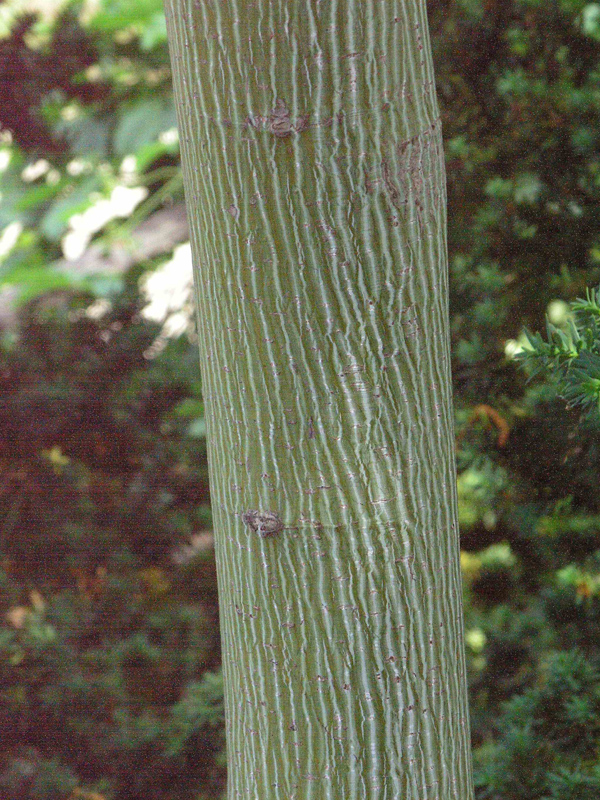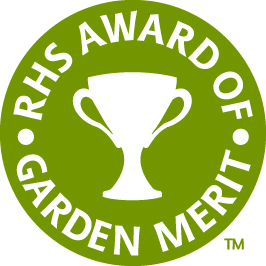| General Description | A. tegmentosum is a small, deciduous, round-to-oval shaped tree. It has pale to bright green glabrous foliage and the samaras are set at a wide angle – almost horizontal. This tree can have a height-to-spread ratio that may resemble a large shrub. This maple has easily recognizable stripping on its stems that become more prominent with age. This species has been placed on the IUCN Red List as least concern and has been listed as vulnerable on the Chinese Species Red List (2004). |
| ID Characteristic | This maple has distinctive stripped bark and can be identified from other snake bark maples by the bloom on its stems. Manchu Striped Maple has chalky-white stripping contrasted against rich green to greenish-purple stems. A. tegmentosum does not have the usual palmate maple leaf but has three-five lobed leaves that and resemble a duck's foot. |
| Shape | Oval to round in form. |
| Landscape | With A. tegmentosum’s smaller size, one would think it would be more commonly used in the landscape, however its use is rare. It has exceptionally attractive stems and foliage that turns golden-yellow in autumn making this a valuable ornamental species. The Manchu Striped Maple can be used for naturalizing or wherever a smaller tree is required in todays landscapes. |
| Propagation | Fresh seed is sown in autumn and left in a cold frame over the winter to germinate the following spring or stratified for four months at 4°C. Hardwood cuttings of two-year old stems are more successful than softwood cuttings of one-year old stems (Dirr, Heuser 2006) and are rooted in sand or perlite under bottom heat. |
| Cultivation | A. tegmentosum requires a cool climate with ample rainfall in spring and summer. Soil that is moist, well drained, and slightly acidic is preferred. Planting in the shelter of a large mature tree is most desirable for protection from bright, direct sunlight and strong winds. |
| Pests | A. tegmentosum is susceptible to a few pests and problems. One of these common problems is nitrogen deficiency which causes chlorosis. While under stress the tree is more prone to cankers and gall mites that cause pale blotches with whitish green or red spikes on the leaves. The Manchu Striped Maple is also susceptible to anthracnose which where small brown spots appear on foliage and is more of a cosmetic blemish than a threatening disease. |
| Notable Specimens | The Arnold Arboretum, Jamaica Plain, Boston, Massachusetts, United States of America. |
| Habitat | A. tegmentosum can be found in coniferous as well as mixed forests along the mountain ranges as an understorey tree in China, Russia and Korea. |
| Bark/Stem Description | A. tegmentosum has rich green to greenish-purple, glabrous, waxy, thin bark. The attractive chalky-white stripes are due to waxes being produced and accumulating in the fissures of expanding bark. The lenticels are quite small and triangular in shape. |
| Flower/Leaf Bud Description | The tree has stalked glabrous buds with the terminal bud being 1.25 cm long with two red, thick spatulate scales at the end of a 1.25 cm glossy red stalk. |
| Leaf Description | The foliage on this maple has three-five lobes with the lateral lobes being much smaller than the terminal lobe and have the initial appearance of a duck's foot. The leaves are glabrous, simple and opposite in arrangement. The leaf blade is 10-15 cm wide and long while the petiole can be 2.5-7.5 cm in length. The leaves have a pale underside; cordate base; acuminate apice; and a finely, uniformly serrated margin. The foliage is bright green but can turn pale as an adaption to full sun conditions. |
| Flower Description | Flowers on the Manchu Striped Maple are hardly noticeable as they are a yellowish green that are overshadowed by the leaves in early spring. The inflorescences occur as simple flowers on a 7.5-10 cm raceme. |
| Fruit Description | A. tegmentosum produces samaras that are 3 cm long and form such a wide angle they are nearly horizontal. The samaras are pale green in colour and turn auburn to beige in late autumn. |
| Colour Description | A. tegmentosum is known for its chalky-white stripping on dark green to purplish-green stems. The leaves are bright green spring through to summer; then turn a golden yellow during autumn. The flowers are hardly noticeable as they are yellowish to green and blend into the foliage. The samaras are also green and turn to an auburn-beige colour in late autumn. |
| Texture Description | The tree overall is of a medium texture. |



